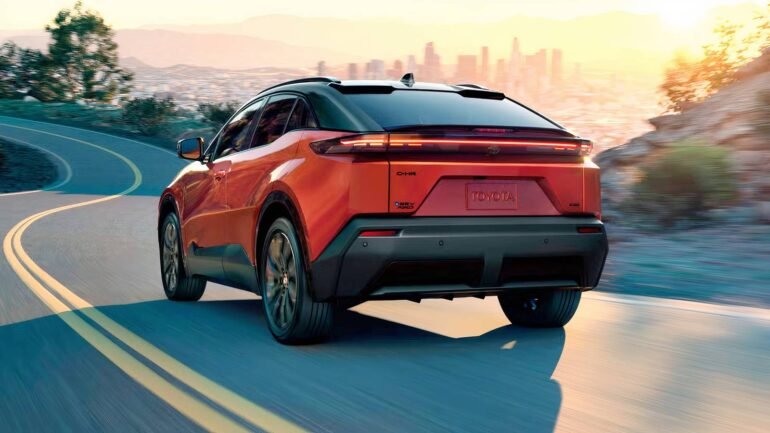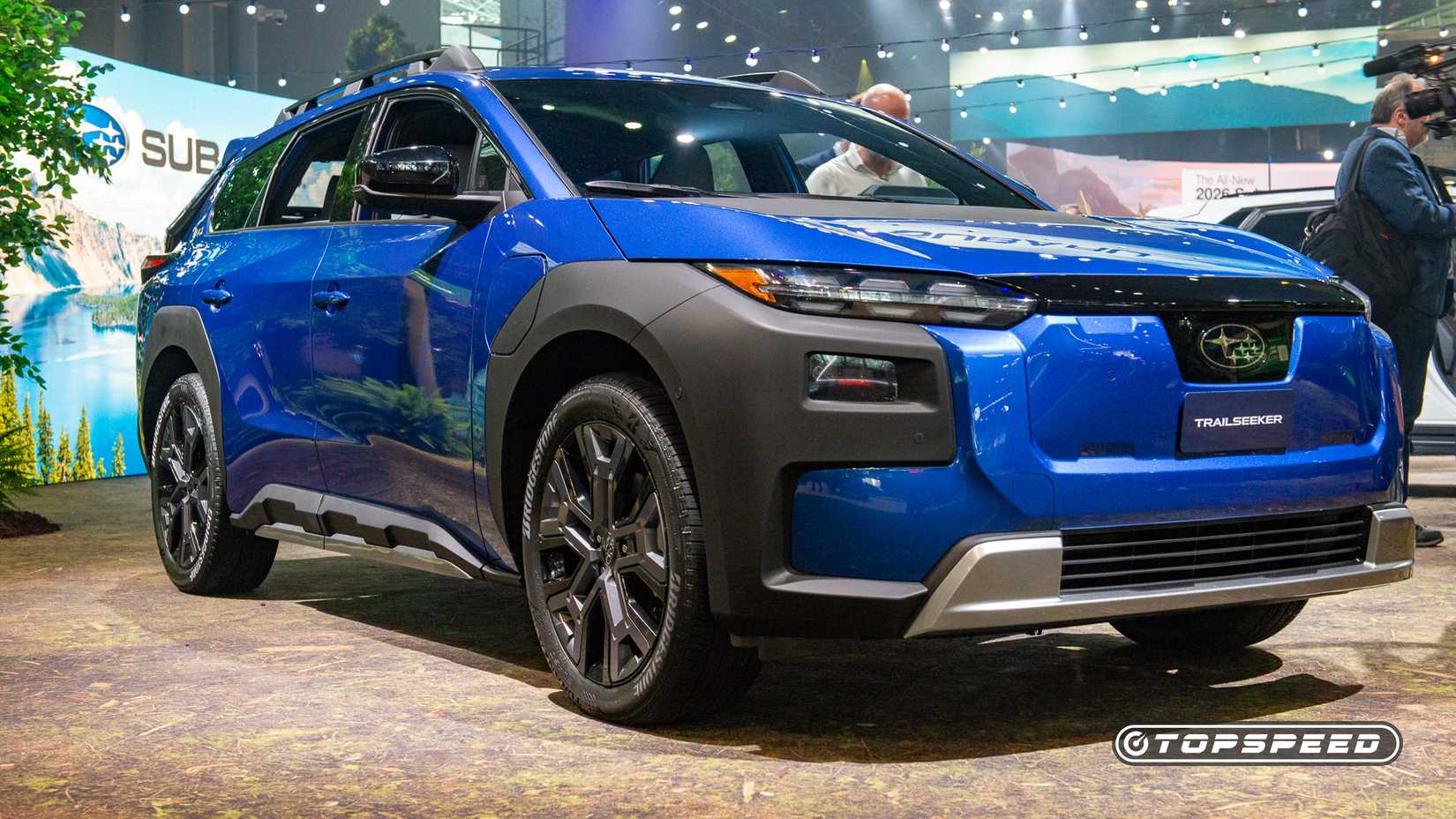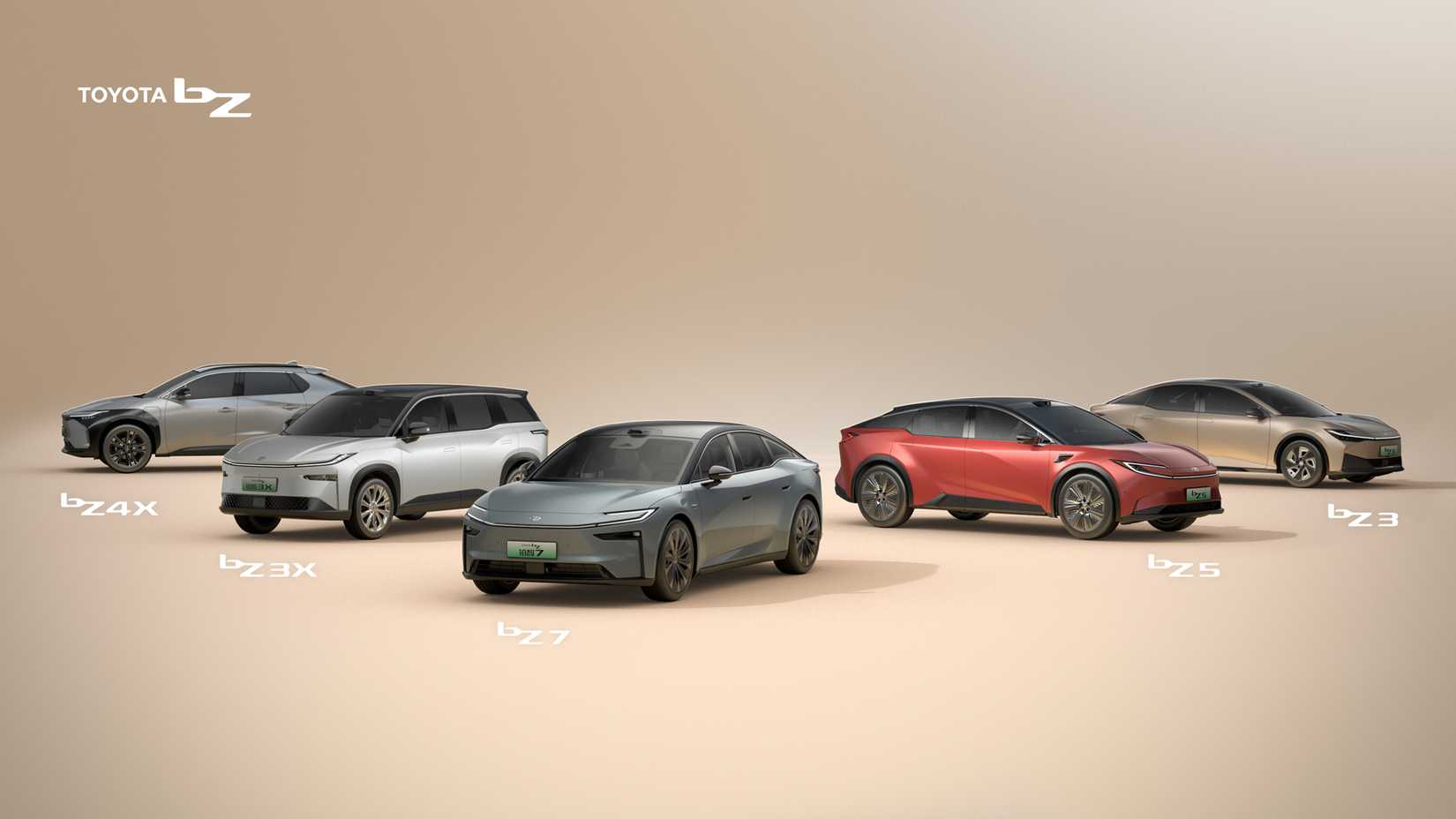It feels like a minute ago, I was preparing my review of the Toyota bZ4X. I remember trying very hard to find good things to say about it. If you’ve been reading my work over the past decade, you’ll know that I simply cannot give praise to a vehicle that fails at its intended mission. And while Toyota does many things quite well these days, its first take at electric vehicles (EVs) with the first bZ4X was simply a mess.
The bZ4X was a particularly frustrating product, not just because it failed at being a good EV versus, say, what the South Koreans or Tesla were selling at the time. It let me down because it came from Toyota. This is an automaker with so many financial resources that it could easily have released an all-electric Corolla sold at a more affordable price point than anything else on sale back then. If there was one automaker that could have dropped an EV bombshell in the auto industry so violently that it would have sent a shock wave through every other automaker, it was Toyota.

- Founded
-
1937
- Founder
-
Kiichiro Toyoda
- Headquarters
-
Toyota City, Aichi, Japan
- Current CEO
-
Akio Toyoda
- Status
-
Active
In other words, the bZ4X sucked because Toyota didn’t really care about selling EVs. This was obvious by the automaker’s constant claims about electric vehicles, to say nothing about its shady and downright weird “studies” that kept favoring hybrids over all-electric propulsion, which, in reality, was really all a crock of shite. Look at the data from any angle you want. A pack of hybrids driving around will never emit less harmful tailpipe emissions than a pack of EVs.
And now, somehow, Toyota and its sister brand, Subaru, seem to have finally hopped onto the EV bandwagon. The bZ4X is now called the bZ and considerably improved. It’s the same story for its corporate twin, the Subaru Solterra. And a slew of new, more competitive EVs are about to be released from both automakers, with rumors of Mazda finally becoming more competitive in that space, too. What happened at Toyota?
To provide the most accurate and up-to-date information, this article uses data sourced from various trusted sources and the manufacturer, as well as the author’s personal experience.
Is Toyota Feeling The EV Heat?
Of course, Toyota executives will do a formidable job of camouflaging the real reason the automaker is leaning more into EVs. During product launch events or through press releases, we’ll hear Toyota say things like “there’s new market opportunity in EVs!”, and that “there’s observable market growth and demand for new, Toyota or Subaru-branded EVs”. But the reality is that the market itself is slowly catching up to Toyota, not just here in North America, but elsewhere in the world, like in Europe, China, and even in its Japanese home market.
No matter how much an automaker or government legislation keeps its head in the sand, mark my words, the auto industry is heading towards full electrification. And if an automaker decides to opt out of this race, it’ll simply become non-competitive and get eaten alive by smarter, wittier, and more proactive automakers. I’ve always said that EV progress is similar to Formula 1 in the sense that if you’re not in earlier on, investing and iterating, then you’ve already lost the race.
Building Up Defenses Against Uber-Competitive Chinese EVs
In a recent podcast appearance with Doug DeMuro, Rivian founder and CEO RJ Scaringe stressed the importance of the auto industry to keep investing in EVs for the sake of competitiveness against Chinese automakers. In China’s own market, EVs are no longer an option, but are the main dominating form of personal transportation now. So, while Toyota made big claims about its tried-and-proven hybrid technology – a technology that works very well for the time being – it’s just a matter of time before consumers start realizing that, for the same price or, in some cases, for even less money (that could happen really soon), they’re just better off financially with an EV instead.
Are Toyota’s Latest EVs Finally Competitive?
To be totally fair, I’m happy to see the sort of upgrades Toyota has made to its bZ4X (now called the bZ). These upgrades also apply to its Lexus twin, the RZ, and I was rather surprised when the automaker announced that two new EVs would soon join the lineup: the bZ Woodland and the C-HR, a model that has been entirely re-imagined as an EV. Meanwhile, on the Subaru side, we also got two new models: the Trailseeker and the Uncharted. Those names are super-cool, by the way.
That, right there, is a sign that Toyota suddenly cares. It’s putting effort into its electric vehicle proposition because it finally sees it with a good eye, and understands that if it doesn’t start competing in this race right now, it’ll just get wiped out of existence. Remember, Kodak didn’t die because of digital photography. The company invented the technology. Rather, Kodak died because it didn’t take digital photography seriously when it came out, resulting in new-generation rivals beating it at its own game.
Toyota obviously didn’t invent EVs, but it was among the most proactive automakers to incorporate EV tech into its hybrid vehicles, and it was even an important player during Tesla’s early years. Somewhere along the line, Toyota lost interest in EV tech, perhaps due to its massive investments in hydrogen, only to realize that the world hadn’t really embraced that technology like it expected.
Catching Up To A Revolution It Helped Start
Now, let me be clear, there’s nothing game-changing about Toyota’s newest EV propositions. But the changes made do show that the automaker now takes this space a lot more seriously, allowing all models to finally be somewhat competitive against key North American rivals from GM, Tesla, and Hyundai/Kia, to say nothing of Ford’s latest announcement about upcoming affordable EVs.
After all, the Toyota bZ, the Woodland, and the CH-R still all ride on 400-volt charging infrastructures in a world where Hyundai has been using 800-volt systems for quite some time now. The bZ’s DC fast charging speeds have indeed improved, and so has range, but Toyota isn’t leading the pack in any way or form at the moment. It has simply caught up to it. But moves like integrating a North American Charging Standard (NACS) charge port, relocating that port for easier use once parked at a Tesla Supercharger, and efforts made to the battery’s thermal management systems to improve cold-weather charging clearly prove that Toyota has been taking notes, and it’s finally giving buyers what they actually need.
Toyota Literally Has Unlimited Potential
Kudos to Toyota for finally coming to its senses about the EV market. I’m genuinely excited to see this automaker kick butt in that space. Toyota has the potential to completely change the face of the auto industry in the blink of an eye. While we’re still far from a truly affordable, all-electric Corolla anyone can afford, Toyota’s latest moves clearly demonstrate a change in vision, which could soon lead to even greater things.




